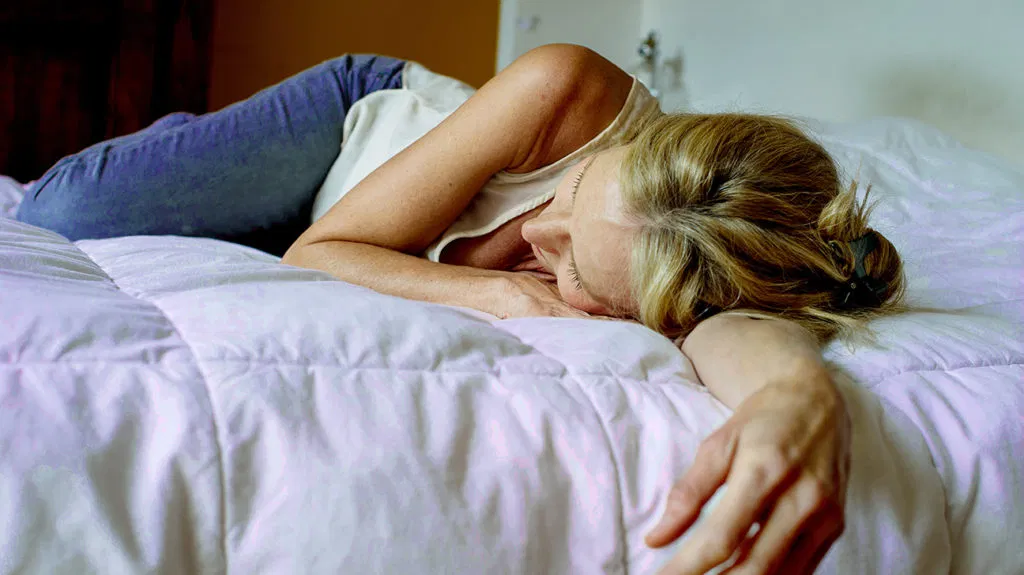There are a lot of challenges that those living with depression and anxiety face, including difficulty falling asleep or staying asleep. This can be extremely disruptive and lead to serious health problems in the future. It can be hard to know which techniques will work for you, as everyone is different, but with some trial and error, you may be able to experience more restful sleep and adapt to healthier overall sleep habits. Continue reading if you want to learn more about how depression and anxiety can interfere with sleep and what you can do to improve the quality of your sleep.
What are some ways to help with occasional sleeplessness?
One thing that often helps is creating a daily routine that works for you. This can include incorporating vitamins and supplements, like Eons mushroom supplements. Mushrooms have been used as a part of an herbal medicinal tradition that dates to ancient China, with many doctors still using them today. Research is also underway, aimed at identifying the more specific benefits they could have for our wellness. Another way you can add vitamins to your routine is an IV drip. Infusion therapy delivers vitamins directly to the bloodstream and keeps you hydrated. If you plan to add any new supplements to your routine, it’s always best to check in with your doctor first, just so they can explain how the sleep therapy equipment could impact any health conditions you have or interact with medications you’re currently prescribed.
Addressing the underlying cause of your mental health condition through therapy is also an important component of the treatment process. No matter how young or old you are, ignoring your mental health can have a profound effect on your life. You can even find quality teenage rehab for depression, so make sure you reach out for help if you need it, or if you notice that your children are exhibiting any common symptoms of depression or anxiety. You can always reach out to a mental health professional to ask questions about their program to see if you think it might be helpful for you or your loved one.
One who suffers from anxiety and depression often has trouble falling asleep or staying asleep. This is because anxiety and depression can cause a lot of stress and anxiety can make it difficult to relax and get comfortable in bed. In addition, people with anxiety and depression may be more likely to have nightmares or frequent awakenings due to their fears or thoughts.
How do depression and anxiety affect sleep?
Depression and anxiety can interfere with sleep by disrupting the body’s natural sleep rhythm. People with depression and anxiety may have trouble falling asleep, wake up frequently during the night, or wake up early in the morning. They may also feel tired and sleepy during the day. Depression and anxiety can also cause physical problems such as headaches and stomach aches, which can interfere with sleep. Individuals with these conditions may often feel restless and anxious, and have trouble shutting off their thoughts when it’s time to go to bed. Given how serious the long-term effects of sleep deprivation can be, it’s essential that those experiencing insomnia find a way to get the rest they need.
Depression and anxiety can also cause people to sleep too much. There is a strong link between depression and anxiety disorders and oversleeping. This can be due to the fatigue and tiredness that are common symptoms of these conditions, or to the way that excessive sleeping can itself become a habit. Oversleeping can be just as harmful as not getting enough sleep, so it’s important to try to find a healthy balance. If you are struggling with lack of sleep or oversleeping, you should talk to your doctor about treatment options.
It’s no secret that lack of sleep can lead to all sorts of problems – from feeling crabby and unfocused to making poor decisions and increasing your risk for developing serious health problems later in life. So it makes sense that improving sleep habits is one of the top priorities for many people seeking therapy. Those with persistent sleep problems may also want to look into natural sleep aids or talk to a psychotherapist about medications that may be able to help. No matter what your approach is, you should always make getting enough quality sleep a priority.

